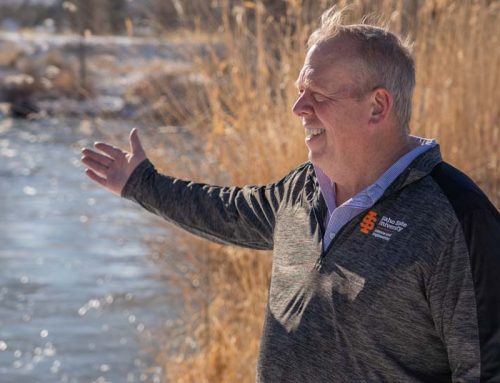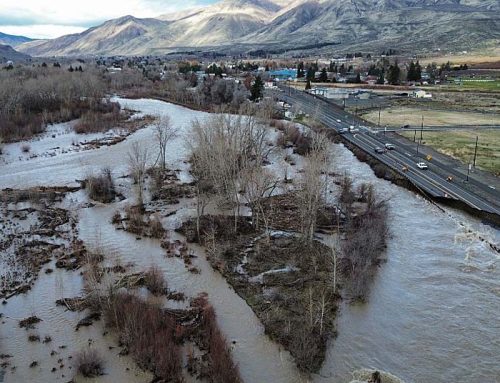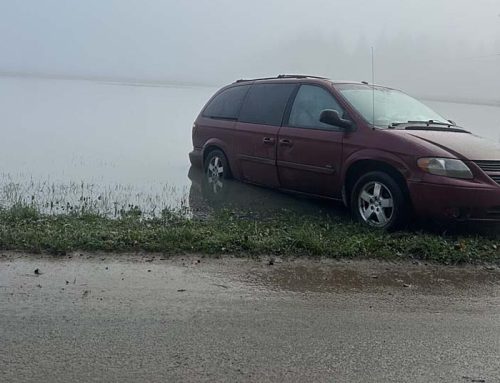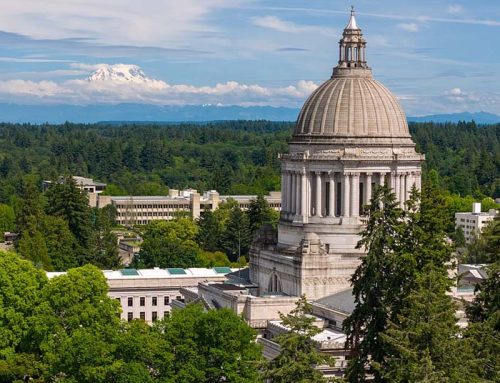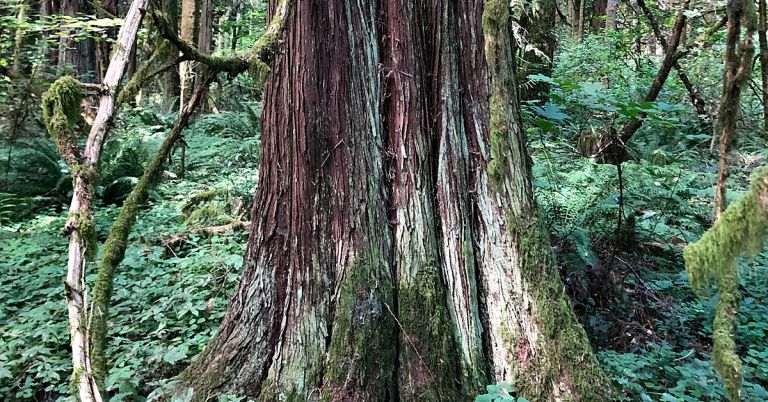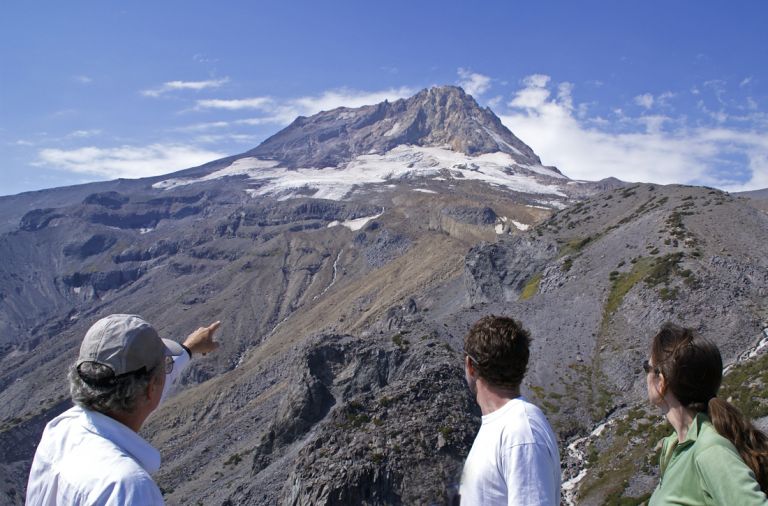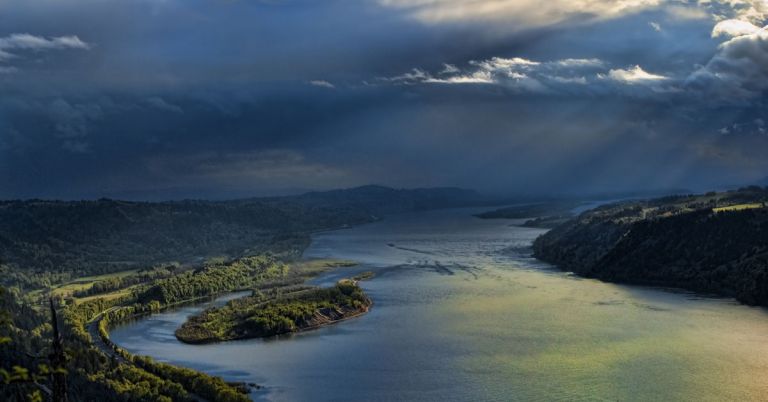A Portland State University professor delivers the grim news, which has implications for future water supply
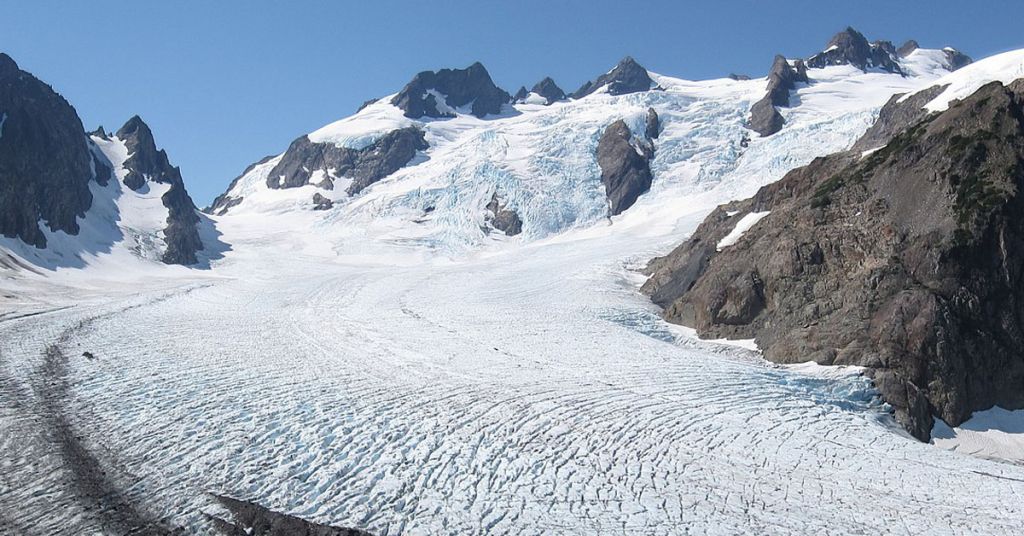
Chilling: Like other glaciers in Washington’s Olympic Mountains, Blue Glacier on Mount Olympus is shrinking. Photo: Aaron Linville/Wikimedia Commons
By Joe Raineri, KGW News. April 25, 2022. Here’s something that’ll catch your attention—in the next 50 years, many of the glaciers in Washington’s Olympic Peninsula will disappear.
That’s according to Andrew Fountain, a professor at Portland State University who’s behind a new study published in the Journal of Geophysical Research: Earth Surface. There are two things behind the glacial melt: a warming climate and the location of the Olympic Mountains.
Fountain teaches geology and geography at Portland State University. He says that by 2070, the glaciers that are so critical to our ecosystem will be gone.
A 2018 study warned that lower-elevation basins in the Pacific Northwest will suffer as smaller snowpack and the shrinkage of glaciers will result in continued reductions in summer streamflow.
Unexpected findings
Even Fountain was taken aback at how quickly the glaciers are fading away.
“That surprised me—I knew they would be shrinking, but I didn’t think they would be disappearing like that,” said Fountain.
He said there’s a reason his team of researchers are expecting to see the glaciers melt away so quickly.
“Those glaciers on the Olympics are the most vulnerable because they are low in elevation and closest to the ocean. So if anyone is going to go quickly, it’s those guys,” Fountain said.
The Olympic Mountains stand 5,000 to 6,000 feet tall, much lower then the high peaks in the Cascades that can stretch to more than 14,000 feet.
MORE: So long, skiing? Cascades could have no snowpack in 50 years
According to researchers, it’s not just warming temperatures that play a role—shorter winters are a big part too. Fountain said winters have been arriving later in recent years and disappearing sooner, leaving thinner snow packs. Thinner snow packs aren’t good for glaciers.
There are about 250 glaciers in the Olympics. According to Fountain, if we make changes now there could be some hope.
“If we back off a little bit the glaciers will last a little longer, maybe to 2100, but we really need to reduce carbon dioxide and other greenhouse gases,” said Fountain.
Columbia Insight is publishing this story as part of the AP StoryShare program, which allows newsrooms and publishing partners to republish each other’s stories and photos.


